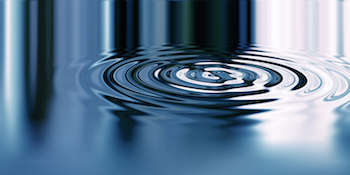It doesn’t take a natural disaster to fill your home with water. A broken pipe, a busted water heater, or even a leaky roof can open up the potential damage to any room in your home.
And if your piano happens to sit in that room, it could face extensive water damage too.
Once a piano has been subjected to water, can it be saved? Can you repair a piano with water damage?
Exposure to water of any kind can be damaging to a piano. Even extreme temperature changes, or a sudden increase/decrease in humidity can create an unstable environment for a piano, requiring extensive regulation of the action and numerous tunings to bring it back to proper performance levels.
If a piano has been sitting in water that has risen to the level of the case or higher, it will most likely be too damaged to be restored or replaced. When the case, soundboard, strings and action are exposed to water, it can cause glue failure, an integral part of the structure of the piano.
The rim and the keybed are the most critical elements to a functioning piano. Once exposed to water, the glue begins disintegrating and cannot effectively be repaired. The strings in a piano have a combined tension of several tons of pressure. Once the water begins penetrating this force, it severely compromises its playability.
Keep in mind that water damage isn’t always an obvious, immediate act. In some cases it is possible to dry out a piano and assume its working fine. The effects may not be truly noticeable until six or nine months down the road.
For a piano that has been sitting in a few inches of water, but the water level has not reached the level of the case, the piano may not be ruined beyond repair. However, moisture will have caused damage, and will have exposed the piano to further damage from things like expansion, contraction, rust and warping. Once moisture makes contact with a piano, restoration is the only way to ensure that it moves back to its working condition.
- Humidity can cause rust to form on any of the metal parts in a piano, including the strings, tuning pins, action, hardware, or plates that support the tension of the strings.
- The glue joints and wood grain of the soundboard can be impacted, allowing it to expand and contract to the point of cracking the wood.
- Mold and bacteria can form in different places throughout the casing.
- The finish can be damaged, with cracking, checking and other finish defects impacting its look.
In all cases, early action can put restoration potential on your side. As soon as possible, contact your insurance agent to begin the process of reimbursement, and connect with us to begin evaluating the possibilities of restoring your piano. The only way to determine if its possible is to look at its potential. Timing is everything; the quicker you can begin, the better your chance of saving your piano.

